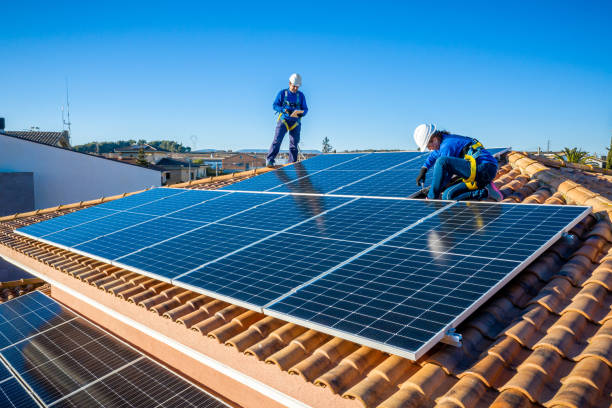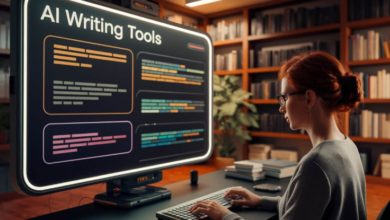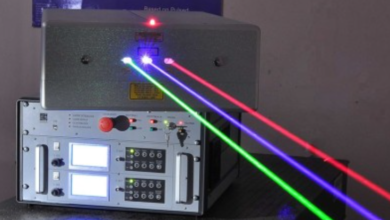
Solar Panel Accessories: Enhance Your Renewable Energy Setup
Solar panels are an excellent way to harness clean, renewable energy. However, to ensure your solar energy system operates at peak performance, certain accessories are essential. These solar panel accessories not only improve efficiency but also help maintain your system’s longevity, ease of installation, and overall functionality. In this article, we’ll explore some of the most important solar panel accessories and how they can enhance your renewable energy setup.
Why Are Solar Panel Accessories Important?
Maximizing Efficiency and Performance
While solar panels themselves are the primary component of any solar energy system, the right accessories ensure they work efficiently. Accessories like inverters, battery storage, and charge controllers are designed to optimize the energy your panels generate. Without these, your solar system may underperform, which could lead to higher electricity costs and wasted energy.
See also: What Are The Latest Technologies Used in Android App Development?
Protection and Durability
Solar panel accessories also play a crucial role in protecting your investment. Items like mounting brackets, grounding systems, and weatherproofing kits are designed to keep your system safe from external elements and ensure that it lasts for years. Proper installation and protection of solar panels are critical for long-term performance.
Simplifying Maintenance and Installation
Some accessories make the installation process much easier, and others simplify maintenance tasks. With tools like solar panel cleaning kits, monitoring systems, and even wire management components, managing and maintaining your solar system becomes hassle-free.
Key Solar Panel Accessories
1. Inverters
What Is an Inverter?
An inverter is a critical component in a solar energy system. It converts the direct current (DC) electricity produced by solar panels into alternating current (AC), which is the type of electricity used to power homes and businesses. Without an inverter, the energy produced by the solar panels would be unusable in a typical household.
Types of Inverters
There are a few types of inverters to consider for your solar system:
- String Inverters: These are the most common type and connect a series of solar panels together into a “string.” A string inverter is efficient but can be less effective in situations where solar panels face different directions or are shaded at different times of the day.
- Microinverters: These small units are attached to each solar panel individually. Microinverters provide greater flexibility and efficiency because they optimize energy production on a panel-by-panel basis, especially in systems with shading issues.
- Hybrid Inverters: These inverters combine the functions of both string inverters and battery storage systems, providing both grid connection and off-grid capabilities.
2. Battery Storage Systems
Why Add a Battery?
Solar energy is generated during the day when the sun is shining. However, you may not need all the electricity produced immediately, and at night, your solar panels aren’t generating any energy. This is where a battery storage system comes in.
Batteries store excess electricity produced during the day, which can be used later when your solar panels aren’t producing energy. This allows you to reduce your reliance on the grid and become more self-sufficient.
Types of Solar Batteries
There are several battery types to choose from:
- Lithium-ion Batteries: These are the most popular choice due to their higher energy density, long lifespan, and smaller size. They are commonly used in residential solar systems.
- Lead-Acid Batteries: While less expensive, lead-acid batteries have a shorter lifespan and require more maintenance than lithium-ion batteries. They are often used in larger commercial systems or for budget-conscious users.
- Saltwater Batteries: A newer technology that offers an environmentally friendly and safe alternative to traditional batteries. They are less common but growing in popularity.
3. Solar Charge Controllers
What Is a Charge Controller?
A solar charge controller regulates the voltage and current coming from the solar panels to the battery. Without this device, your battery could overcharge, leading to potential damage or a shortened lifespan. Charge controllers help to maintain the proper voltage levels, ensuring your battery charges safely and efficiently.
Types of Charge Controllers
There are two main types of charge controllers:
- PWM (Pulse Width Modulation) Controllers: These are more affordable but less efficient. They work by maintaining a constant charging rate, regardless of the battery’s charge level.
- MPPT (Maximum Power Point Tracking) Controllers: MPPT controllers are more expensive but much more efficient, especially in systems where the panels are exposed to fluctuating light levels or partial shading. These controllers adjust the charging rate to optimize the energy conversion, which can lead to up to 30% more energy harvested from your panels.
4. Mounting Brackets and Racks
Importance of Mounting Systems
The mounting system is crucial for securely attaching your solar panels to the roof or ground. Without a proper mounting system, your solar panels may be at risk of damage from high winds or other environmental factors.
Types of Mounting Systems
- Roof Mounting: These are the most common for residential solar installations. They are designed to securely attach solar panels to the roof, whether it’s a flat roof or a pitched one.
- Ground Mounting: For people who don’t have suitable roof space, ground mounting offers a solution. Solar panels are mounted on frames placed directly on the ground. This is often used in commercial installations or homes with large yards.
- Pole Mounting: This is a more advanced system where solar panels are mounted on a pole above the ground. Pole mounts are adjustable, allowing you to tilt the panels to capture optimal sunlight.
5. Wiring and Connectors
The Role of Wiring and Connectors
The wiring and connectors are responsible for transferring the electrical current from the solar panels to the inverter and battery. These components need to be high-quality to ensure safe, efficient, and long-lasting energy transfer.
Choosing the Right Wiring
- Solar Cables: These are specifically designed to handle the voltage and current produced by solar panels. They are typically UV-resistant, durable, and weatherproof to withstand outdoor conditions.
- Connectors: Connectors are used to join different components of the system, like panels to the inverter. MC4 connectors are the most common type in solar power installations due to their high efficiency and secure connections.
6. Solar Panel Cleaning Kits
Why Clean Your Solar Panels?
Keeping your solar panels clean is essential for maintaining their efficiency. Dust, dirt, and debris can block sunlight from reaching the panels, reducing their energy output. A regular cleaning routine ensures that your solar panels continue to perform at their best.
Tools for Cleaning
A solar panel cleaning kit typically includes:
- Soft Brushes: Designed for gentle cleaning to avoid scratching the panels.
- Microfiber Cloths: To wipe down panels without leaving residue.
- Specialized Cleaning Solution: Non-abrasive, eco-friendly cleaners that won’t damage the panels or the environment.
7. Monitoring Systems
Why Monitor Your Solar System?
Monitoring systems provide real-time data about your solar energy production and usage. These systems help you keep track of how much energy is being generated, how much is stored, and how much is consumed. If there are any issues with your system, a monitoring system can alert you so that you can take immediate action.
Types of Solar Monitoring Systems
- App-Based Monitoring: Many modern solar systems offer app-based monitoring, allowing you to track your system’s performance from your smartphone or computer.
- Inverter-Based Monitoring: Some inverters come with built-in monitoring features that provide information about the energy output and efficiency of your panels.
Conclusion
Solar panel accessories play a crucial role in enhancing the performance, durability, and overall functionality of your solar energy system. From inverters and battery storage to mounting systems and monitoring tools, each accessory helps your solar panels work more efficiently and last longer. Whether you’re looking to install a new solar system or upgrade your existing one, investing in the right accessories will ensure that your renewable energy setup operates at its best, ultimately saving you money and contributing to a more sustainable future.




